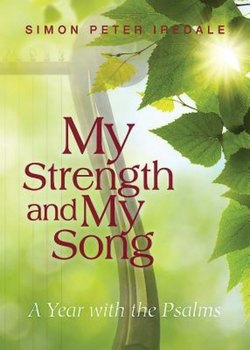Читать книгу My Strength and My Song - Simon Peter Iredale - Страница 11
На сайте Литреса книга снята с продажи.
ОглавлениеPsalm 27
This psalm is particularly well known and well loved. It has the serenity of someone whose faith is sure, and there is much to ponder of value for us. The opening verses speak of God being the psalmist’s “stronghold.” A pattern of imagery in the psalms emphasizes the way the psalmist feels that his faith is a refuge from both the assaults of the world and the devious plans of his enemies. The mention of “stronghold” brings sharply to mind the rock fortresses of the arid Judean landscape, places like Masada overlooking the Dead Sea where the last tragic chapter of the First Jewish-Roman War was played out in A.D. 73. There might well have been similar places as this in the psalmist’s mind when in several psalms he wrote of God being a “high rock,” a “refuge,” and in this psalm, also a “shelter” (verse 5) prepared for the day of trouble.
We then have a shift of emphasis to the psalmist’s desire to “dwell in the house of the LORD” (verse 4). This evidently had a clear geographical location in mind, the Temple in Jerusalem, but also, no doubt, a wider meaning of a life lived in obedience to God and the covenant. This is the significance of the mention of both the shelter afforded by God’s “tent” (verse 5), which I take to mean membership of the covenant, as well as the place where the rites of the covenant are performed (verse 6).
One does get the impression from this kind of imagery, however, that it is almost wholly defensive. The psalmist is relieved that he can effectively dash into the stronghold of his faith and shut the door. While in the Christian life there are certainly times we would like to do that too, the imagery of the Christian faith is not only far more open but it is also dynamic. The principal image we have of the community of the church is the body of Christ, developed by the apostle Paul (1 Corinthians 12:12-31). There are also other images, that of a “holy city” (Revelation 21:2) and a “holy priesthood, a royal nation” (1 Peter 2:9). The church has not, figuratively speaking, run into the stronghold and shut the door. The different parts of the body look after the needs of the body, but the gifts of the Holy Spirit are also distinctive in that they are naturally turned outward to the surrounding world, whether it is open to the message of Christ or hostile to it. Gifts like the working of miracles, prophecy, teaching, and the roles of prophet and apostle (1 Corinthians 12:10, 29) are really only fully realized in contact with an unbelieving world.
So, in broad terms, the contrast I would like to bring out is that between a defensive, inwardly looking faith and one that is for all humankind. This openness to the world brings inevitable suffering (as it certainly did for Paul’s generation): “If one member suffers, all suffer together; if one member is honored, all rejoice together” (1 Corinthians 12:26). But while it would be easier not to come into conflict with the world and hide away somewhere, it would be a falling away from the very nature of the community brought into existence by Christ.
This is the contrast that is being worked out through the incident of Christ’s cleansing of the Temple (John 2:13-22). While there is a great deal of scholarly debate about what exactly was going on and where Jesus was in the layout of the Temple when this incident took place, the force of Jesus’ actions is to reclaim God’s house for its primary purpose: prayer and worship. More, if the event did indeed take place in the Court of the Gentiles, it is a sign of how Jesus by a kind of direct action was teaching that his appearance was not for the benefit of a narrow cult but for all creation, whether Jew or Gentile.
The church, because it is on a spiritual level a living community rooted in the divine life of the Holy Trinity, is in many ways refuge, springboard, and resource for the witness to Christ in the world. It is a therapeutic community in the sense that we work out our salvation together and seek and receive healing; but it is also a community engaged in the struggle against sin in the world.
The scoffers and the unbelieving would be delighted if we withdrew into our fortress and didn’t give them any trouble. However, if we were to do that, we would fail in Christ’s commandment of redeeming love.
For Reflection
Is your church community outward- or inward-looking?
Prayer
Christ, who drove the traders out of the Temple, prepare in my heart a place of worship. Amen.
